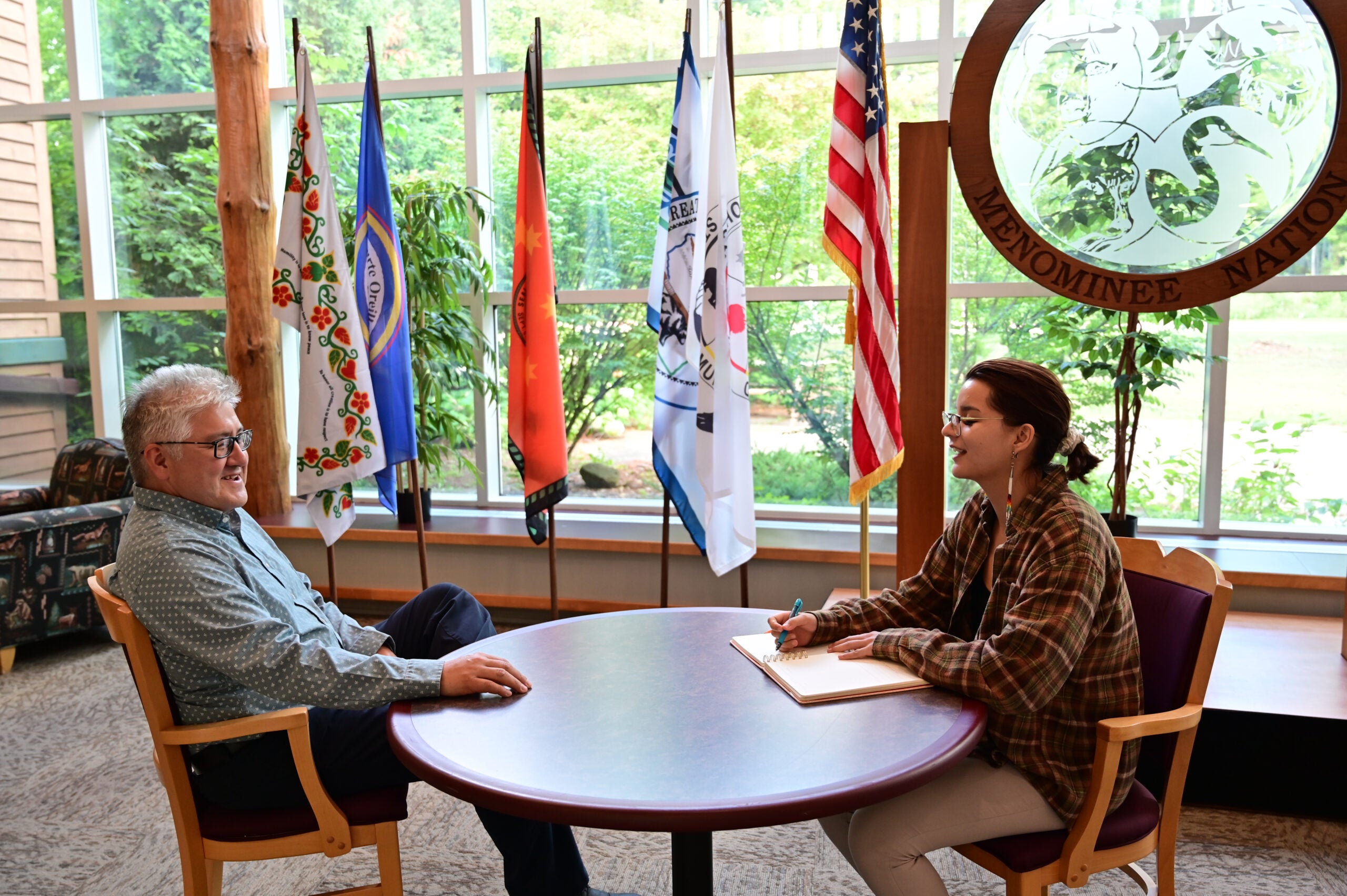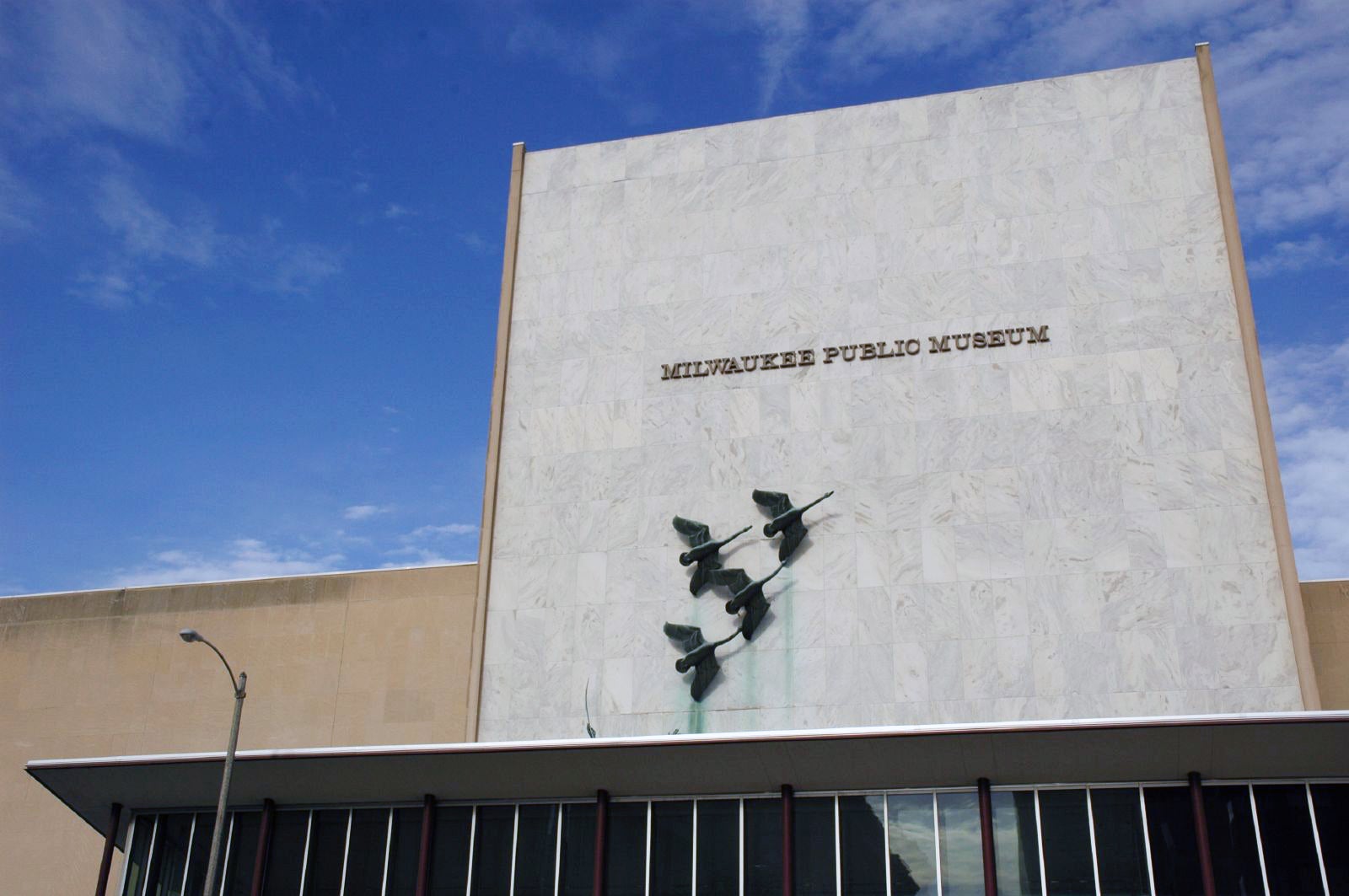In the wake of sweeping federal funding cuts by the Trump administration in recent weeks, U.S. Department of Agriculture grants that fund tribal colleges and universities in Wisconsin and beyond have vanished — putting students that rely on them in jeopardy.
A recent report from ProPublica found that about 20 college students at the College of Menominee Nation in Keshena rely on grants from the federal agriculture department to cover their tuition. Unless other money can be found, these cuts are leaving these students with only a few weeks left on their campus.
These cuts come as tribal colleges are already dealing with decades of insufficient funding from Congress, without much support to build and maintain their campuses. In the 1970s, Congress passed laws that guaranteed funding for higher education systems run by Indigenous communities. Another report from ProPublica found that annual funding for tribal colleges and universities today is $250 million less than what was originally promised, adjusted for inflation.
News with a little more humanity
WPR’s “Wisconsin Today” newsletter keeps you connected to the state you love without feeling overwhelmed. No paywall. No agenda. No corporate filter.
Chris Caldwell, president of the College of Menominee Nation in Keshena, joined WPR’s “Wisconsin Today” to talk about how the funding freeze and the uncertainty surrounding it has affected the students and faculty on his campus.
The following was edited for clarity and brevity.
Rob Ferrett: When did it hit you, your colleagues and students that this funding that you were expecting — some of which was already spent — wasn’t coming?
Chris Caldwell: We had seen in the original federal funding freeze memo that was issued by the Office of Management and Budget that pretty much all of our federal grants were frozen. Back in January, we didn’t know what was going on, and so we started reaching out to our agency contacts and even our elected officials’ offices, just looking for answers. Eventually, through court proceedings, some of the funding started to become available again. But there are a few projects that we still haven’t been able to access.
RF: Your college received a USDA grant that’s funding, among other things, some scholarships. Do you know where that stands now?
CC: No. That is our USDA Next Gen Grant. It’s a $9 million workforce development grant we had secured a year and a half ago that goes towards student scholarships, internships, curriculum development and also partnering with communities and other institutions focused on food, agriculture, natural resources and health. The only thing we’ve received so far from the USDA is a notice that funding is paused. That was in January, and that’s the only notice we’ve received.
RF: What does that mean for your operations on a day-to-day basis?
CC: Well, it does impact positions here. There were specific positions that were helping to facilitate that large body of work. Internships help keep our students proceeding through their academic journey. Oftentimes, they determine whether [those students] are able to stay full time or not.
Over the past couple months, as we advocate for getting those programs restored, we’re also looking at other ways to support our students. We do not offer loans here at the College of Menominee Nation. We want to make sure our students graduate without debt so they can continue forward. But that does make it a little more difficult for us.
We don’t have the same types of resources or assets that other larger institutions have that they could switch to. So, we’re still struggling to find ways. We have found some solutions, but we don’t know how long this will continue, and if that’s the case, our resources will continue to dwindle.
RF: What are you hearing from current and prospective students about how this affects their planning for the next school year, starting in September?
CC: Many of our students come to school, but they’re also working. Sometimes they’re raising families. So, there’s a lot of concern across the board to begin with, juggling all of those responsibilities. But the uncertainty, and whatever is going on in the government that’s impacting us, that doesn’t help them make better decisions.
I write regular updates to our student body and our college as a whole, just to keep them updated on what we know. But our knowledge only goes so far. We visited our elected officials’ offices back in the first week of February, and some students came with us and shared their stories with [Sen. Tammy] Baldwin, [Sen. Ron] Johnson and [Rep. Tony] Wied’s offices. At that time, they didn’t have many answers either, so I’m not exactly sure when answers will be coming.
RF: Even before this year’s funding freezes, Congress was underfunding tribal colleges and universities, violating commitments made to those institutions under past laws, according to reporting from ProPublica. Why should Congress provide funding for tribal campuses?
CC: Tribal land grant institutions were created back in the 1990s to serve tribal nations that chartered them, and the reason we were provided with specific funding programs was because other land grants that were established were actually given land, so there’s a whole history behind that.
But even with the funding we do receive, we’ve been able to generate large impacts for the Tribal Nation communities we serve and the rural surrounding communities. We just released an economic impact study based on last year’s fiscal year numbers, and we generated a $16 million impact and supported almost 360 jobs in this region of Menominee and Shawano County. So we have a large impact, and if we were more properly supported, I have no doubt we could make an even bigger impact.
Wisconsin Public Radio, © Copyright 2025, Board of Regents of the University of Wisconsin System and Wisconsin Educational Communications Board.





